If you’re actively optimizing your website for SEO and running PPC campaigns, you might have noticed that an increase or a decrease in paid spend can influence your organic performance and cause a similar increase or decrease in traffic, click-through-rate, and conversions.
In this blog post, we will dive into the relationship between SEO and PPC and try to answer the following questions:
- Can we measure the correlation between paid and organic traffic?
- Does paid search impact branded and non-branded keywords equally?
- Is running paid ads necessary to achieve significant SEO results?
To understand the effect of paid search on SEO performance, I’m going to look at performance for paid and organic channels for some of Obility’s clients who are using both services. The timeline will be January 2019 to May 2019, to avoid the holiday slow down.
Here are the three clients we’re going to audit:
- Client A. Large enterprise website with clients all over the world and several regional subdomains. Client A has thousands of product pages and 125,000 pages indexed by Google. Client A’s average click-through-rate is very high, around 7% on average.
- Client B. Medium-size website with around 1,700 pages indexed by Google. Its click-through-rate is fairly low, just slightly above 2%. Client B’s clients are mostly located in the US and the website gets very little traffic from non-English speaking countries.
- Client C. Medium-size website, with a click-through of around 2% and 1,600 pages indexed by Google. Client C does not have an international presence. Client C is interesting to look at because they paused a paid campaign for a couple of weeks, which had notable repercussions on organic performance.
Client A
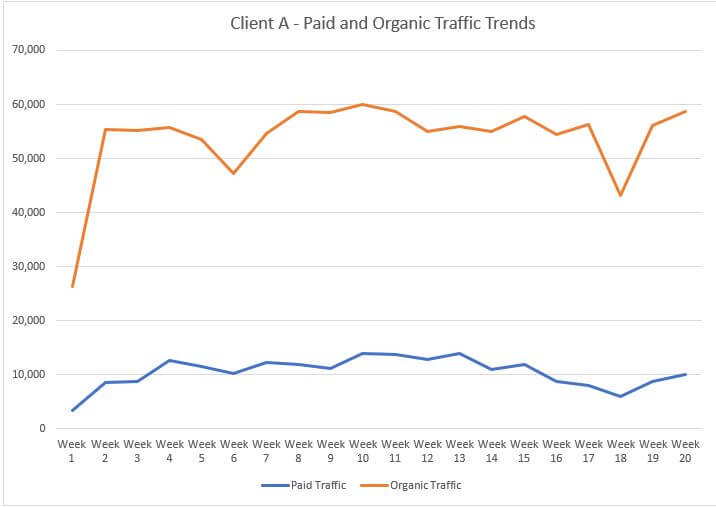
Looking at paid and organic traffic data for the past 20 weeks, we see that the decreases on week 6, 9 and week 18 are reverberated across paid to organic. Week 10, 19 and week 20 are also showing similar increases.
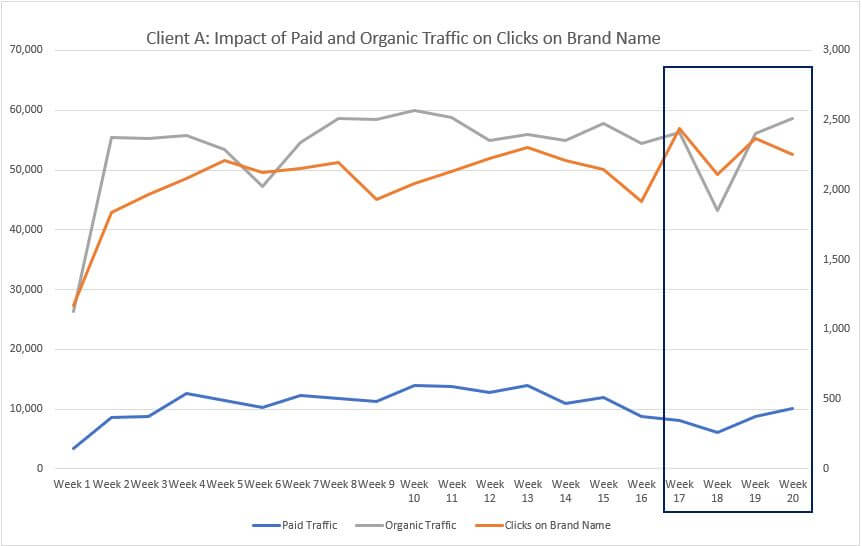
When adding clicks on brand name data to the mix (on a secondary axis), we see a clear downward trend for all metrics on week 18 and an upward trend starting week 19.
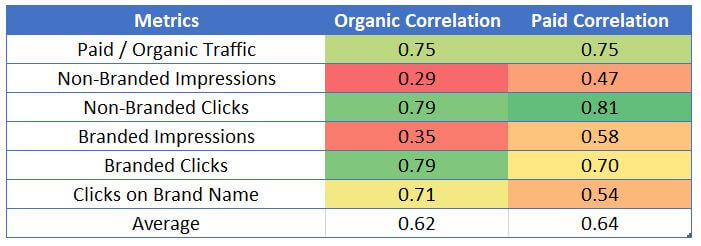
The metrics in the table have been calculated manually, by looking at the correlation between paid traffic and organic traffic for the past 20 weeks, as well as the correlation between organic traffic, impressions and clicks for all keywords and organic traffic and clicks on brand name. Clicks and impressions have been separated between branded and non-branded, to get more granular data and a better understanding of which keywords were impacted by organic and paid traffic. The same process was repeated for paid traffic. A correlation coefficient of +1 indicates a perfect positive correlation.
The data shows that, for client A, paid search has a very strong influence on organic traffic, branded and non-branded clicks. On average the correlation between paid traffic, clicks and impressions is stronger than the correlation between organic traffic, clicks, and impressions.
We know that optimized metadata is key to increase the click-through-rate and organic traffic to the website, but the data in the table above shows that if Client A stopped running paid campaigns they would see a pretty notable decrease in clicks on organic results.
Client B
Once again the trends for paid traffic and organic traffic follow each other closely and both channels are growing at a similar rate. In fact, the correlation between organic and paid traffic is the closest to +1 out of the three clients studied in this blog post.
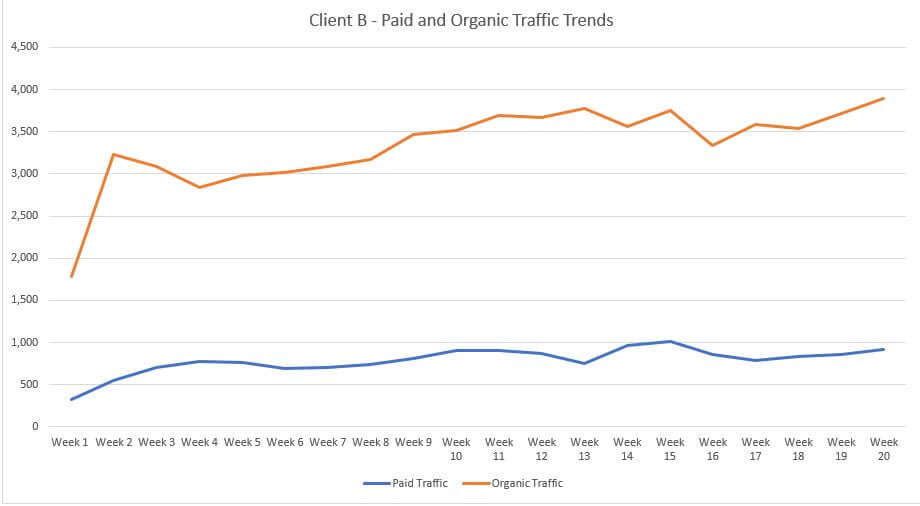
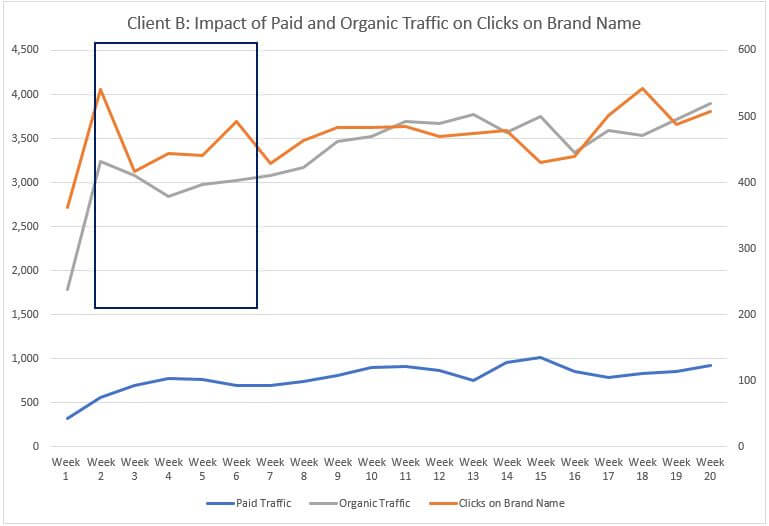
The impact of paid search on branded clicks and impressions is not as significant as for client A, but it shouldn’t be ignored. As we see in the table below, the correlation between paid search traffic and non-branded impressions and clicks is close to 0.8, which means that if paid traffic was to drop Client B would definitely lose clicks and impressions on non-branded keywords and consequently, lose organic traffic.

Client C
Client C is a bit different, since a paid campaign for a high priority keyword was paused for a couple of weeks on April 24th, 2019. When comparing the two weeks before and after the pause we saw a 27% decrease in click-through-rate and a decrease of one position in average keyword ranking (source: Google Search Console).
Let’s start by looking at overall paid and organic traffic, clicks and impressions data:
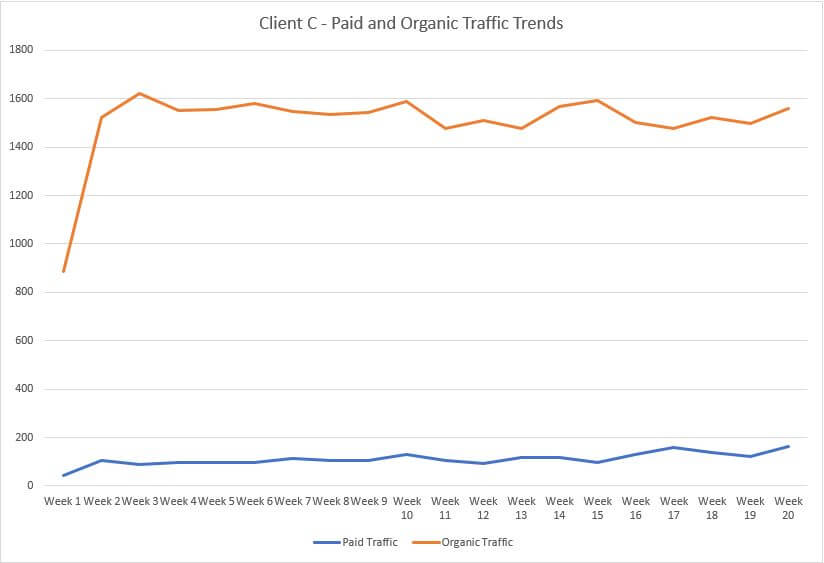
Once again fairly similar decrease on weeks 10 and 11 and similar increase on weeks 2 and 20.
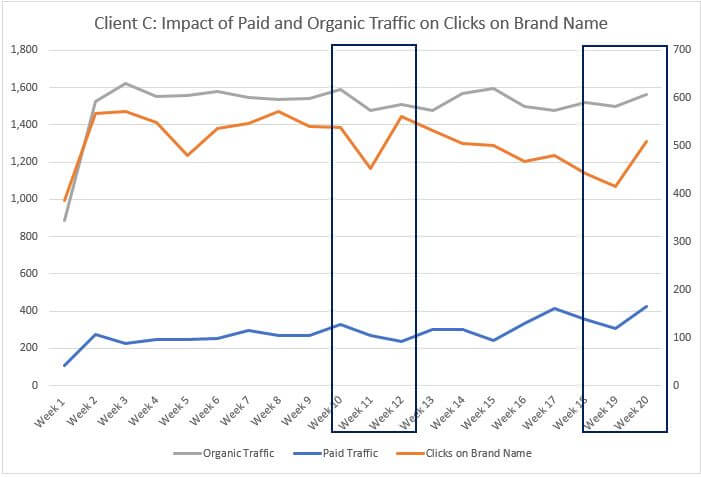
The second graph is pretty telling, we’re seeing an increase in clicks, paid and organic traffic towards the end of the timeline and the dip in Week 11 is visible in organic traffic, paid traffic and clicks on the brand name.
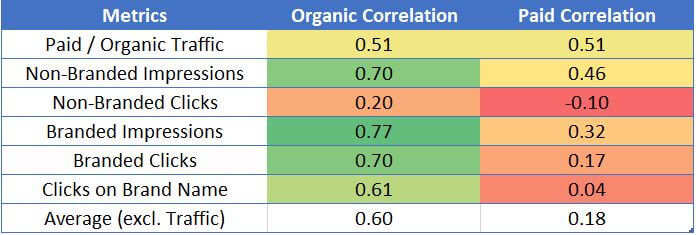
The correlation between paid traffic and clicks on branded and non-branded keywords is surprisingly low, so let’s take a look at branded keywords in more detail.
As we discussed earlier, a paid campaign was paused on April 24th, 2019 for a couple of weeks:
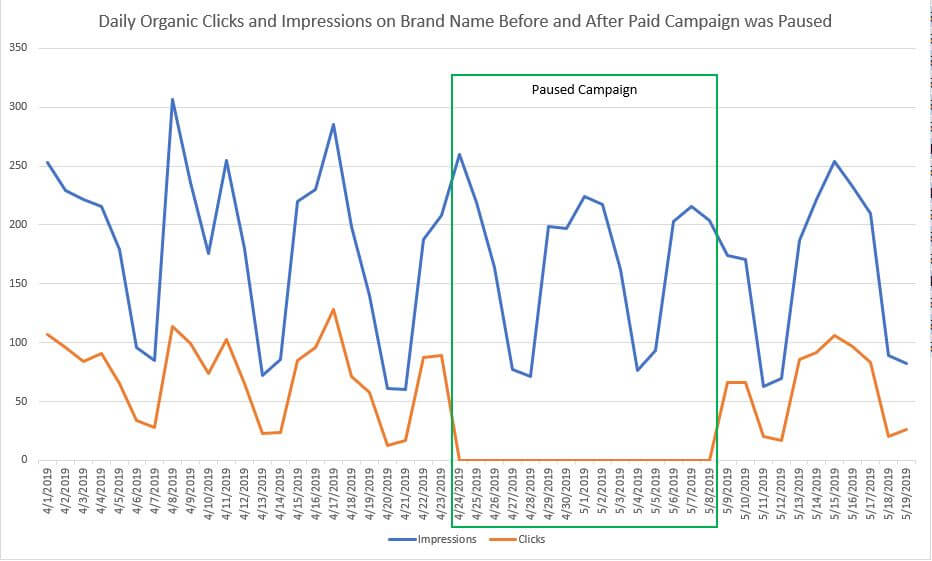
It’s pretty clear that pausing that campaign had a serious impact on the brand name’s performance. During the two weeks where the paid campaign was paused Client C’s brand name received no clicks at all.
The goal of this blog post was to answer the following questions:
- Can we measure the correlation between paid and organic traffic?
Yes, we definitely can. Our three examples above showed that there is a strong correlation between paid and organic performance and that stopping a paid campaign will negatively impact SEO performance.
- Does paid search impact branded and non-branded keywords equally?
Paid search impacts branded and non-branded keywords similarly. Branded keywords are being affected slightly more (especially when looking at the clicks and impressions for the brand name of Client B), but the difference is relatively small.
- Is running paid ads necessary to achieve significant SEO results?
Combining SEO and PPC has numerous benefits.
First, showing up in both PPC and SEO results gives you a better chance of owning the SERP and offers a chance to establish a leadership position in the industry.
In addition, paid search campaigns can be used to test organic keywords that are difficult to rank for. It will yield faster results and will help you gauge users’ interest in said keyword before investing time and resources in creating new content.
Finally, optimizing your PPC landing pages following SEO best practices will make them more user-friendly and will help increase your quality score.
Overall, running paid ads is not necessary to achieve great SEO results and you can’t rely on paid search only to boost your SEO results, but a well-rounded SEO strategy should take paid search into consideration.
